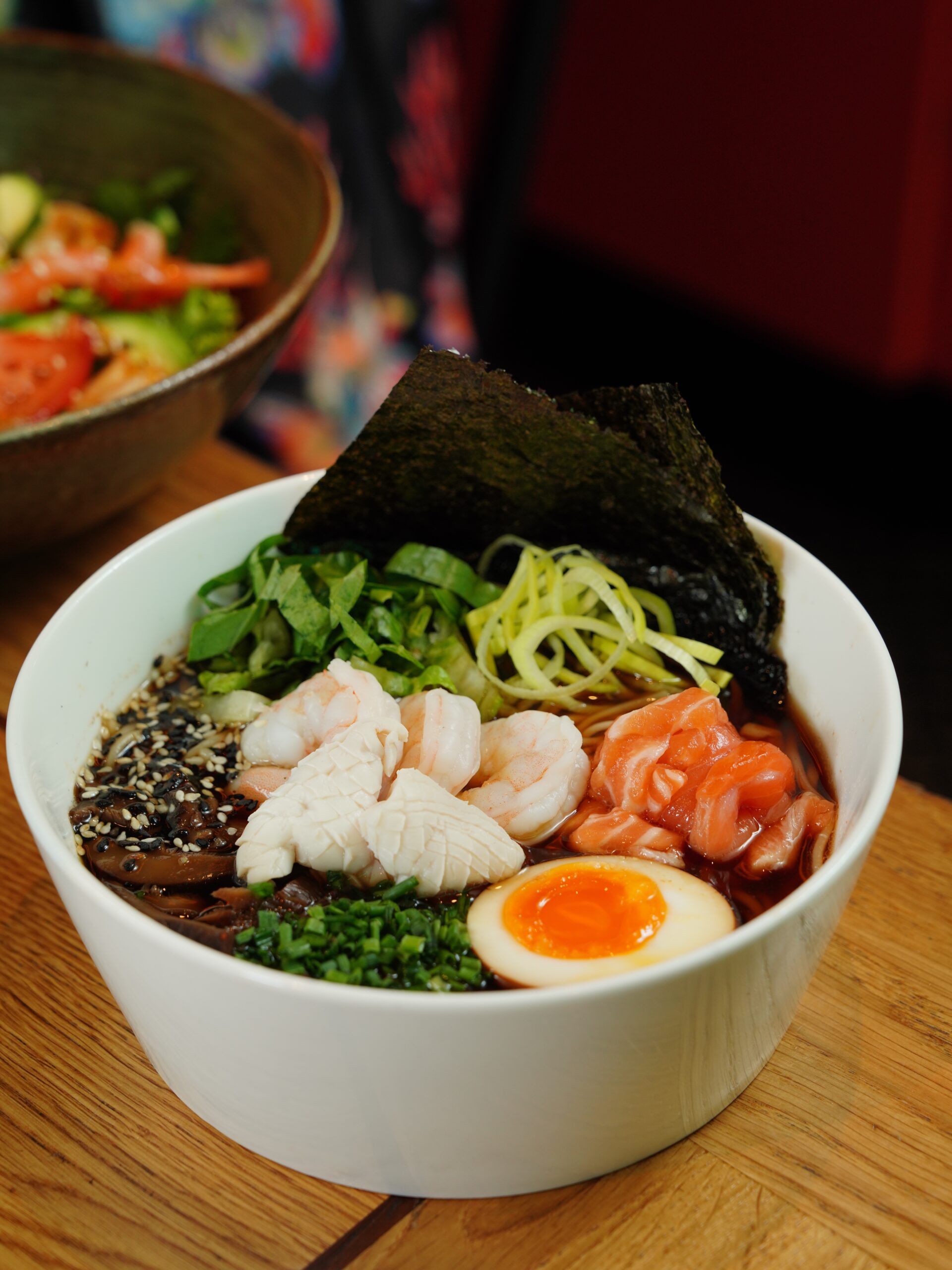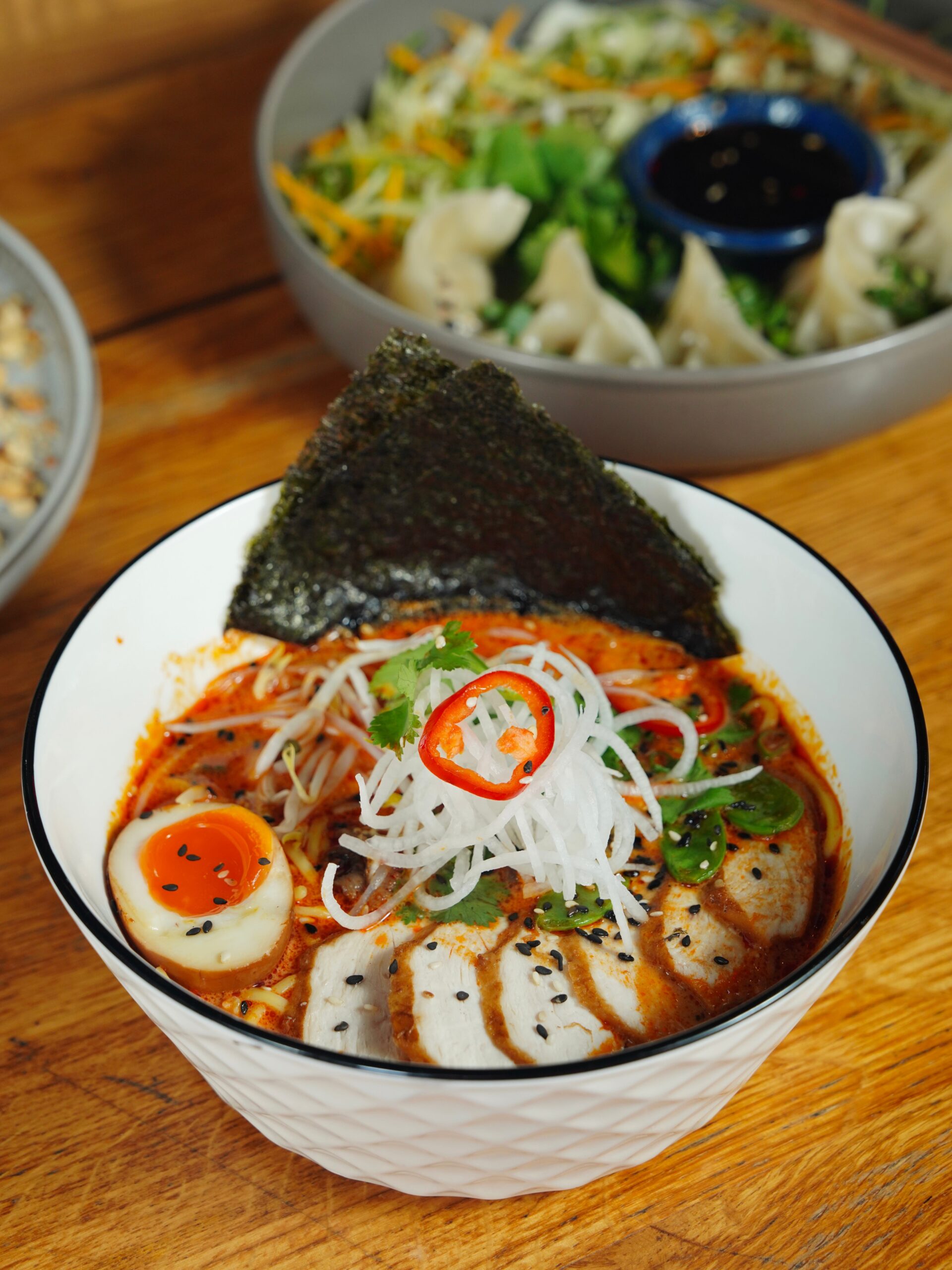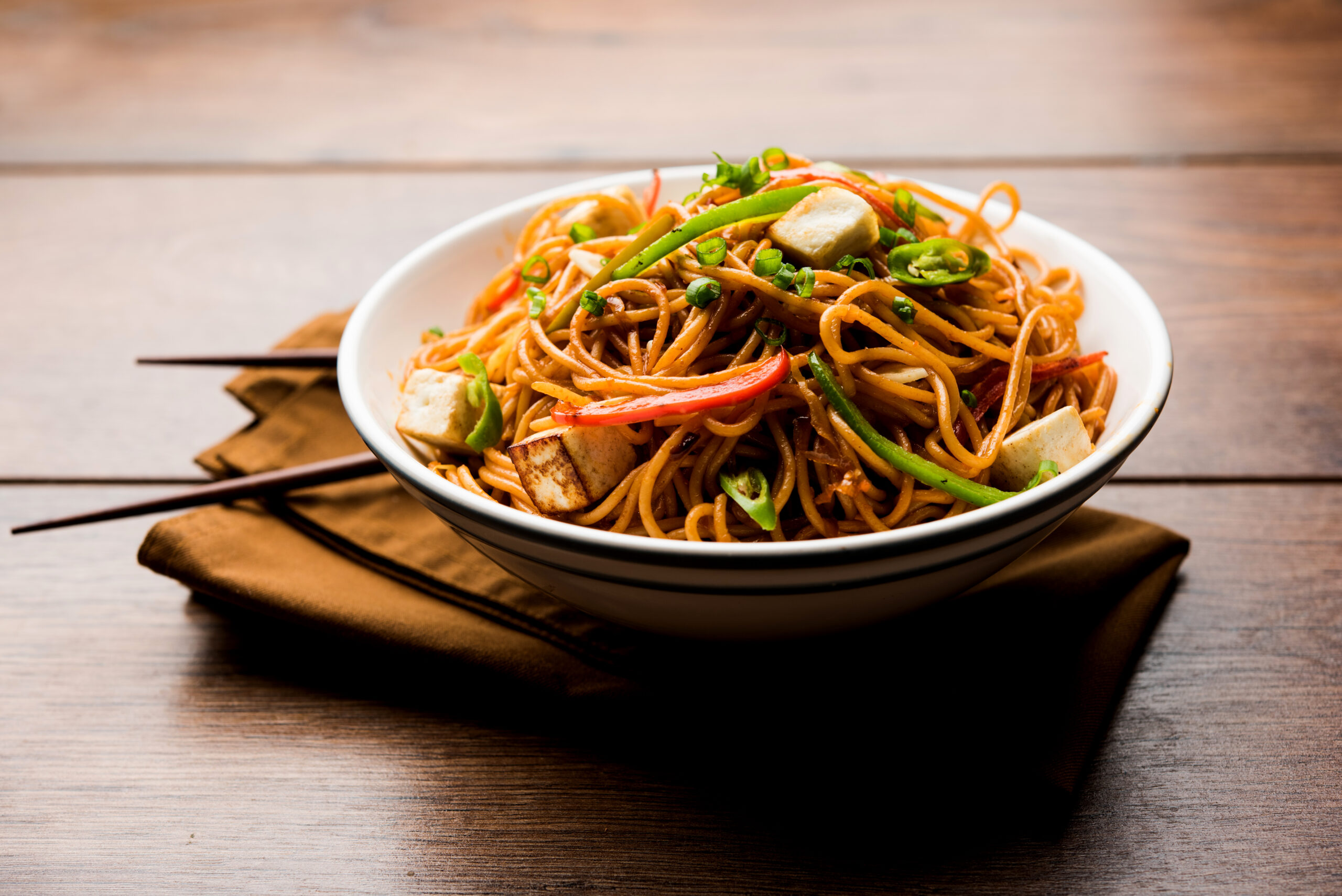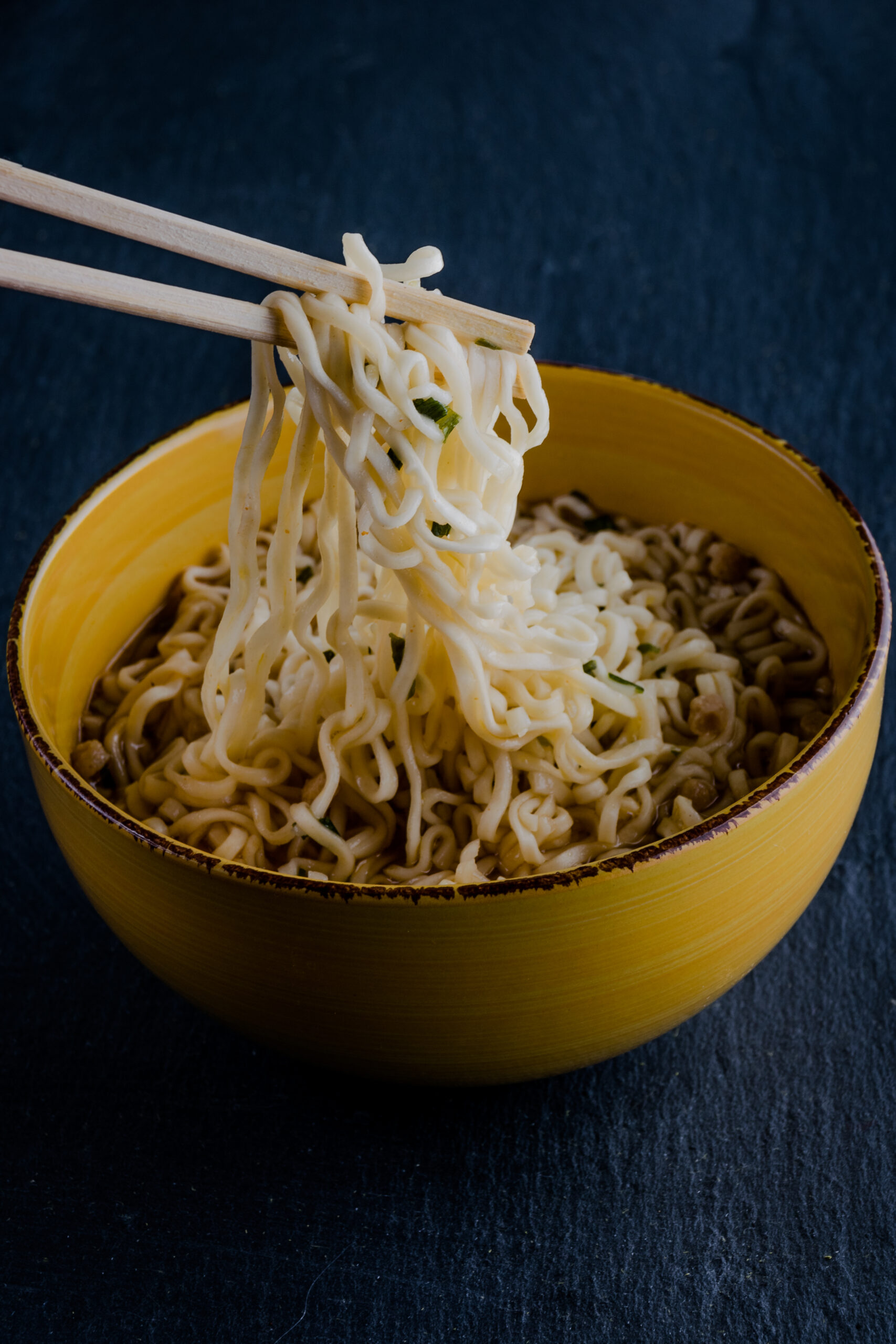Are Maruchan Ramen Noodles Bad for You?
I believe these ramen noodles are so popular with all ages for a fast and quick meal. Whether it is nutritious or not, that is another story!
If you’ve ever indulged in the convenience and deliciousness of instant ramen noodles, you might have wondered about their impact on your health.
In this post, we’ll take a closer look at Maruchan Ramen and explore whether these popular instant noodles are as harmless as they seem.
From the different types of ramen noodles available to the potential health risks associated with their consumption, we’ll provide you with all the information you need to make an informed choice when it comes to enjoying this beloved comfort food.
So, let’s dive right in and uncover the truth about Maruchan Ramen’s impact on your well-being.

Types of Ramen Noodles
Shoyu Ramen
Shoyu ramen is a classic Japanese ramen dish that features a soy sauce-based soup. It is known for its savory and slightly salty flavor. The broth is made by simmering soy sauce, chicken or vegetable stock, and various aromatics like garlic and ginger.
Shoyu ramen is usually topped with chashu (braised pork belly), bamboo shoots, green onions, and a soft-boiled egg.
Miso Ramen
Miso ramen is another popular variety of ramen that originated in northern Japan.
The soup base is made from fermented soybean paste called miso, which gives it a rich and complex umami flavor.
The broth is typically combined with chicken or pork stock and seasoned with soy sauce, garlic, and other spices.
Miso ramen is often garnished with chashu, bean sprouts, corn, and butter, providing a unique combination of flavors.
Tonkotsu Ramen
Tonkotsu ramen is known for its creamy and rich broth that is made from simmering pork bones for several hours. The result is a velvety soup with a deep, robust flavor.
The noodles used in tonkotsu ramen are typically thin and straight, allowing the broth to cling to them. Popular toppings for tonkotsu ramen include chashu, black garlic oil, wood ear mushrooms, and pickled ginger.
Shio Ramen-Tsukemen
Tsukemen is a style of ramen where the noodles are served separately from the broth. The noodles are usually thicker and chewier to withstand the dipping process.
The broth for tsukemen is highly concentrated in flavor, often made from pork, chicken, or seafood, and seasoned with soy sauce, garlic, and spices.
When eating tsukemen, you dip the noodles into the broth before taking a bite, allowing for a customizable experience.
Nutritional Content of Maruchan Ramen Noodles
Now comes the truth…..
Calories
Maruchan ramen noodles contain around 380–390 calories per serving. This calorie content may vary slightly depending on the flavor and additional ingredients added.
Sodium
One packet of Maruchan ramen noodles contains approximately 830–900 mg of sodium, which is significantly higher than the recommended daily intake for sodium.
Fat
Maruchan ramen noodles typically have around 14-16g of fat per serving. The fat content primarily comes from the included seasoning and the oil used in the preparation of the noodles.
Carbohydrates
A serving of Maruchan ramen noodles contains approximately 52-54g of carbohydrates. These carbohydrates mainly come from the wheat noodles and the added seasoning.
Protein
Maruchan ramen noodles provide about 7-9g of protein per serving. While this may seem like a decent amount, it is important to note that the protein content is relatively low compared to other protein sources.

High Sodium Content and Health Risks
The Impact of Sodium on Health
High sodium intake can have detrimental effects on your health. It is linked to an increased risk of hypertension (high blood pressure), heart disease, stroke, and kidney problems.
Recommended Daily Sodium Intake
The American Heart Association recommends limiting sodium intake to no more than 2,300mg per day for adults. However, for individuals with high blood pressure, the recommendation is even lower, at 1,500mg per day.
Excessive Sodium and High Blood Pressure
Consuming excessive sodium can elevate blood pressure levels, causing strain on the cardiovascular system. This increase in blood pressure can lead to a higher risk of heart disease and stroke.
Potential Kidney Problems
A high sodium intake can put a strain on your kidneys, which are responsible for filtering out waste and excess fluid from the body. Over time, this strain can contribute to the development of kidney problems.
Effects on Heart Health
Excess sodium consumption can disrupt the balance of fluids in the body and increase the volume of blood, leading to an increased workload on the heart. This can contribute to the development of cardiovascular diseases.
Lack of Nutritional Value
Empty Calories
Maruchan ramen noodles are often considered to be empty calories, meaning they provide little to no nutritional value beyond their calorie content. They lack essential vitamins, minerals, and other beneficial nutrients.
Unsaturated Fats
While Maruchan ramen noodles contain a moderate amount of fat, the fat content primarily consists of unhealthy saturated fats. These fats can increase the risk of heart disease and negatively impact cholesterol levels.
Lack of Fiber
Fiber is an important component of a healthy diet, aiding in digestion and promoting satiety.
Unfortunately, Maruchan ramen noodles are low in fiber, which can contribute to digestive issues and make you feel less satisfied after consuming them.
Minimal Vitamin and Mineral Content
Maruchan ramen noodles lack significant amounts of essential vitamins and minerals. They do not provide a substantial source of nutrients such as vitamin A, vitamin C, iron, or calcium, which are essential for overall health and proper bodily functions.

Presence of Harmful Ingredients
Monosodium Glutamate (MSG)
Maruchan ramen noodles often contain monosodium glutamate (MSG), a flavor enhancer that can cause adverse reactions in some individuals, such as headaches, flushing, and sweating.
In large quantities, MSG may have negative effects on health.
Preservatives
Maruchan ramen noodles contain preservatives to prolong their shelf life, such as tertiary butylhydroquinone (TBHQ).
While these preservatives are considered safe for consumption in small amounts, excessive intake may have harmful effects.
Artificial Flavorings and Colorings
To enhance the taste and appearance of the noodles, Maruchan often uses artificial flavorings and colorings.
These additives may not contribute to the overall nutritional value and can potentially cause adverse reactions in some individuals.
Trans Fats
Maruchan ramen noodles may contain trans fats, which are considered the most harmful type of dietary fat
. High trans fat intake increases the risk of heart disease, raises bad cholesterol levels, and lowers good cholesterol levels.
Negative Impact on the Digestive System
Processed and Refined Ingredients
Maruchan ramen noodles are made with processed and refined ingredients, including bleached wheat flour and palm oil.
These ingredients can be difficult for the digestive system to break down and may contribute to digestive issues.
Lack of Dietary Fiber
As mentioned earlier, Maruchan ramen noodles are low in fiber. Fiber plays a crucial role in maintaining a healthy digestive system and preventing constipation.
Cooking tips from Famous Chefs
The absence of fiber in these noodles can lead to digestive problems.
Potential Digestive Issues
Consuming a high amount of processed ramen noodles, like Maruchan, may cause digestive issues such as bloating, gas, and discomfort.
These symptoms can be attributed to the lack of fiber, processed ingredients, and high sodium content.

Alternatives to Maruchan Ramen Noodles
Homemade Ramen Recipes
One alternative to Maruchan ramen noodles is to make your own ramen at home using fresh ingredients.
This allows you to have control over the ingredients used and customize the dish based on your dietary preferences.
Healthier Instant Ramen Brands
There are now several brands that offer healthier versions of instant ramen noodles.
These brands often use whole wheat or gluten-free noodles, lower-sodium seasoning, and natural ingredients.
Fresh or Frozen Ramen Options
Many grocery stores now offer fresh or frozen ramen noodles that can be cooked quickly and easily.
These noodles are often made from higher-quality ingredients and have a better nutritional profile compared to instant ramen.
Eating Out at Ramen Restaurants
If you still crave the flavors of ramen but want a healthier option, consider dining at a ramen restaurant.
Many ramen establishments focus on using high-quality ingredients and offer a variety of broth options, including vegetarian and low-sodium choices.
Balancing Ramen Noodle Consumption
Moderation and Portion Control
While Maruchan ramen noodles may not be the healthiest option, they can still be enjoyed in moderation.
Stick to smaller portion sizes and consider limiting your consumption to once in a while.
Adding Nutritional Ingredients
To boost the nutritional content of ramen noodles, consider adding fresh vegetables, lean proteins like chicken or tofu, and herbs or spices for extra flavor.
This can help make the dish more balanced and nutritious.
Choosing Healthier Ramen Varieties
opt for ramen noodles that are made from whole grains or have a lower sodium content.
Pay attention to the ingredient list and choose options with fewer additives and artificial flavorings.
Cooking tips from Famous Chefs
Diversifying Your Diet
Ramen noodles should not be the sole focus of your diet. It is important to incorporate a variety of nutrient-dense foods like fruits, vegetables, whole grains, lean proteins, and healthy fats into your meals for overall health and well-being.
Conclusion
While Maruchan ramen noodles can be a convenient and inexpensive meal option, it is important to be aware of their nutritional content and potential health risks.
Consuming them in moderation and balancing your diet with healthier alternatives can help mitigate any negative effects.
By understanding the different types of ramen noodles, their nutritional content, and the impact they can have on your health, you can make informed choices about your dietary habits and overall well-being.
Remember, a balanced and varied diet is key to maintaining good health.
Happy Cooking!

